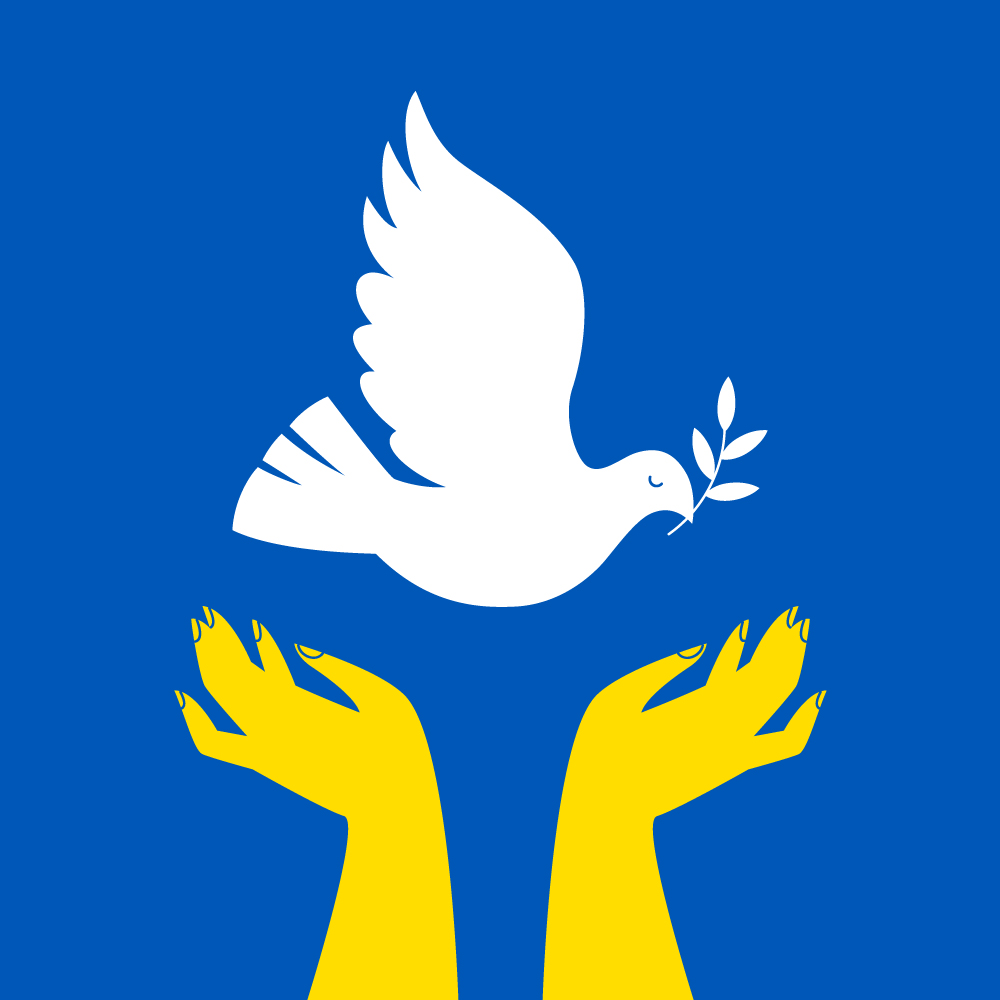
Tanya Mykhaylychenko, a regular contributor to The Editors’ Weekly, grew up in Ukraine and witnessed the first weeks of the war in February and March. In this post, she shares her experience and recommends resources that can help people learn more about Ukrainian culture, the latest news and ways to donate.
Many of you may have followed the news from Ukraine closely. Some of the ways to help remain unclear to people in North America. I would like to share some practical ideas on how we can help from Canada.
Give money to a Ukrainian volunteer
Because of the complexities of logistics, one of the most efficient ways to deliver aid directly to Ukraine is through an individual volunteer in your location who has strong ties in Ukraine and is able to send the funds directly to people in Ukraine, so they can buy what they need on location.
This ensures that nothing gets lost along the way and the aid gets directly to the people who need it. Your volunteer may not be able to provide tax receipts, but they know people in Ukraine and will tell you exactly how the funds will be used.
My own example includes serving two doctors and two armed forces contacts by providing funds to purchase medications, clothes for the armed forces and electricity generators. When my city was under siege, a cardiologist reported a critical lack of blood pressure medications (taken life-long) and submitted a list. An anesthesiologist in the women’s hospital was completely out of spinal anaesthesia needles and injectable medications. Armed forces usually need clean clothes, tactical gloves, tactical lights, tactical glasses, boots and tourniquets (to stop bleeding if wounded). They also need electricity generators if they are working in the fields or woods or if the electricity supply is damaged.
If you have a Ukrainian colleague or neighbour, ask them if they are fundraising for similar efforts. In many places in Ukraine, courier delivery is available, and volunteers may have agreements with pharmacies in other regions to place large-scale orders and deliver them to specific locations, including closer to the front lines.
Support refugees in your community
Another option is to volunteer for a Ukrainian refugee settlement effort in your community. These centres usually need used kitchenware and furniture, items for children (toys, books, strollers, etc.), hygiene products and transportation assistance.
Maybe you are able to provide maintenance services or help newly arrived Ukrainians with basic settling processes, like opening a bank account, registering children at school, filling out forms or editing their resumés.
Donate to humanitarian aid in your community
There may be a Ukrainian organization or a church in your community that collects humanitarian aid and ships it to large volunteer hubs in Western Ukraine. The aid usually includes medications, dry foods, baby formula, hygiene products, new clothes, etc.
In Montreal, for example, this work is done by St. Michael’s Ukrainian Church, and they have published a detailed list of their needs. You can bring the products to the church, make a donation or offer some of your time to help pack, load and transport the packages.
Donate to a charity of your choice
Or you could make a tax-deductible donation to a registered charity of your choice. I’ve curated a detailed list of registered charities (U.S. and Canada) and other Ukrainian resources. (The Canadian Anti-Fraud Centre [CAFC] offers tips to avoid charity scams, including asking for information in writing before making a donation.)
Euromaidan Press offers additional, verified options to help.
Help edit brief texts
I have also heard from editor colleagues that they proofread posts for resources like U24 or emerging oral history projects. For Ukrainian job seekers, there is an ongoing need to have a clean, well-formatted resumé. Several people with backgrounds in banking, law and start-ups founded an NGO in Montreal, 4Ukraine.ca, to help Ukrainians get jobs in Canada.
The first steps for Ukrainian job seekers are outlined in the guide on U24’s website (available in Ukrainian), which asks candidates to translate their experience (using Google Translate, if necessary) and create the first draft using a provided template. Then they are paired by email with volunteers who will edit their resumés and, ideally, respond within 72 hours. Volunteers can choose when they are available and how many resumés they would like to take. To register as a volunteer editor, please email your name, email address, specializations, second language skills and how many resumés you can take at one time to resumes@4ukraine.ca.
Thank you for standing with us!
___
Previous post from Tanya Mykhaylychenko: How to Offer Your Authors Positive Feedback
The Editors’ Weekly is the official blog of Editors Canada. Contact us.
Discover more from L'HEBDOMADAIRE DES RÉVISEURS
Subscribe to get the latest posts sent to your email.
